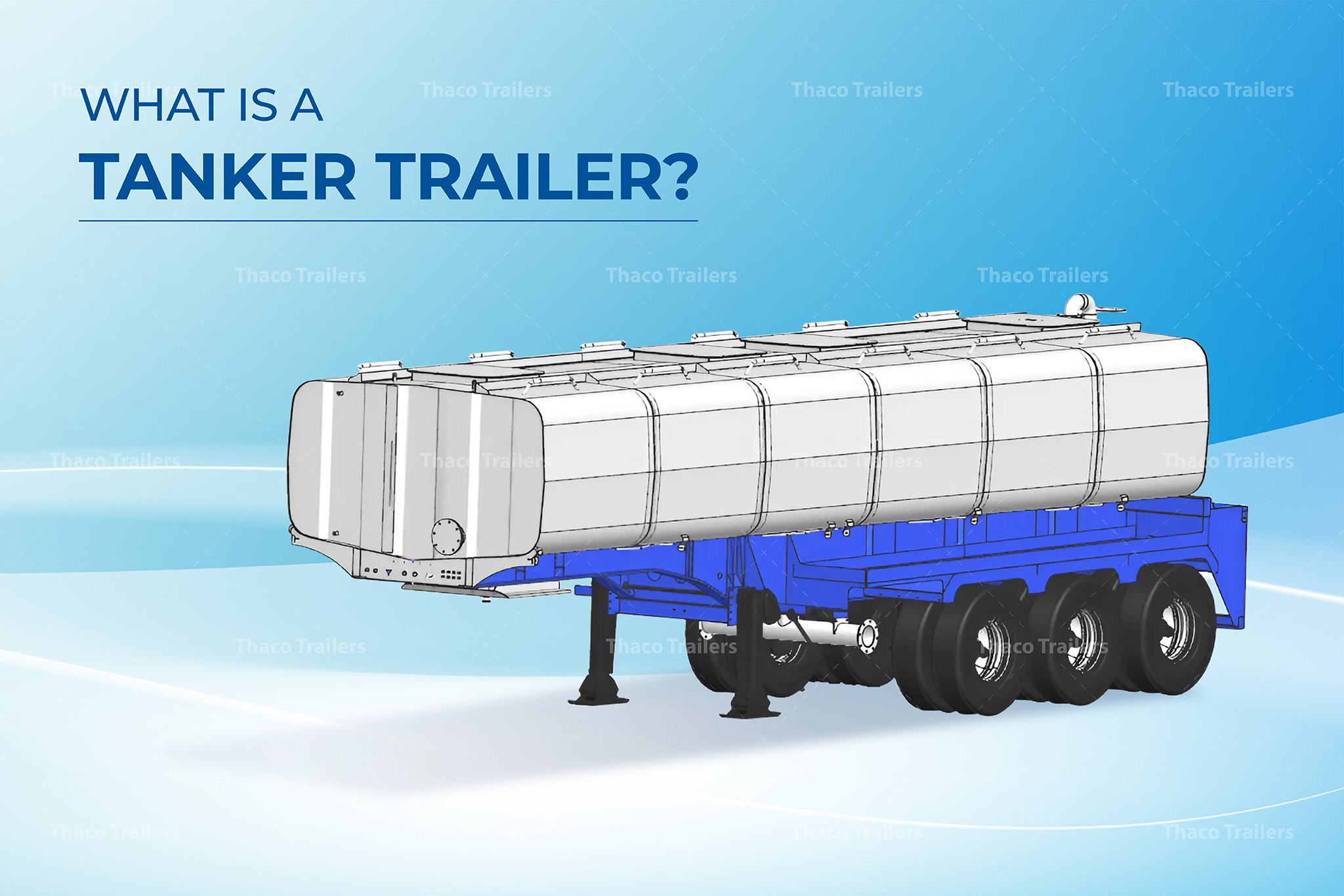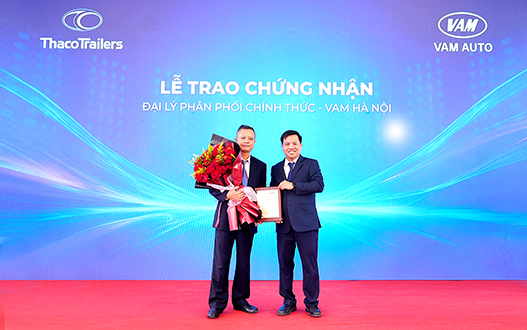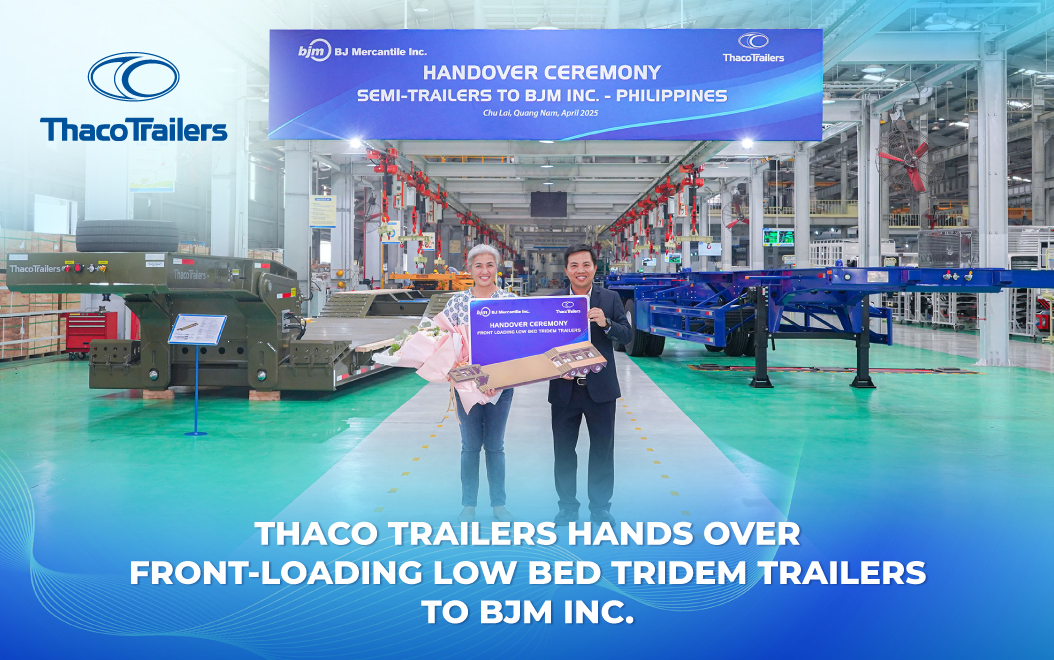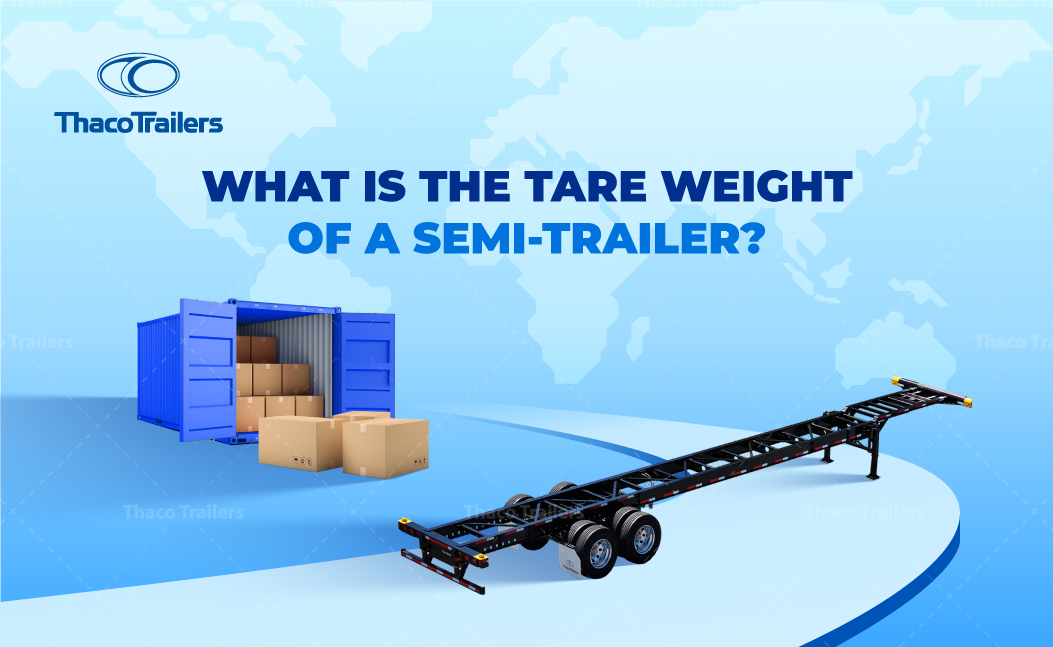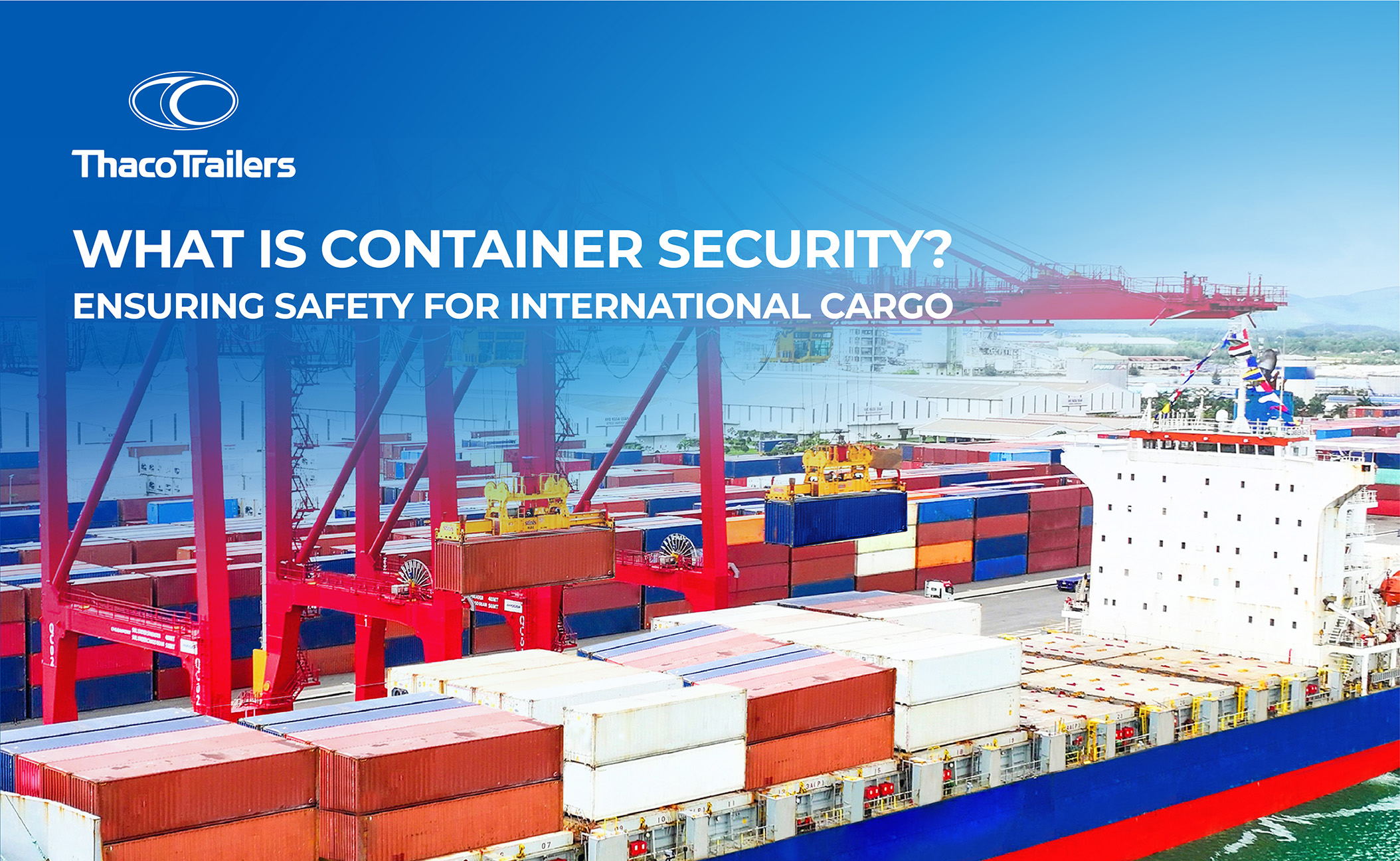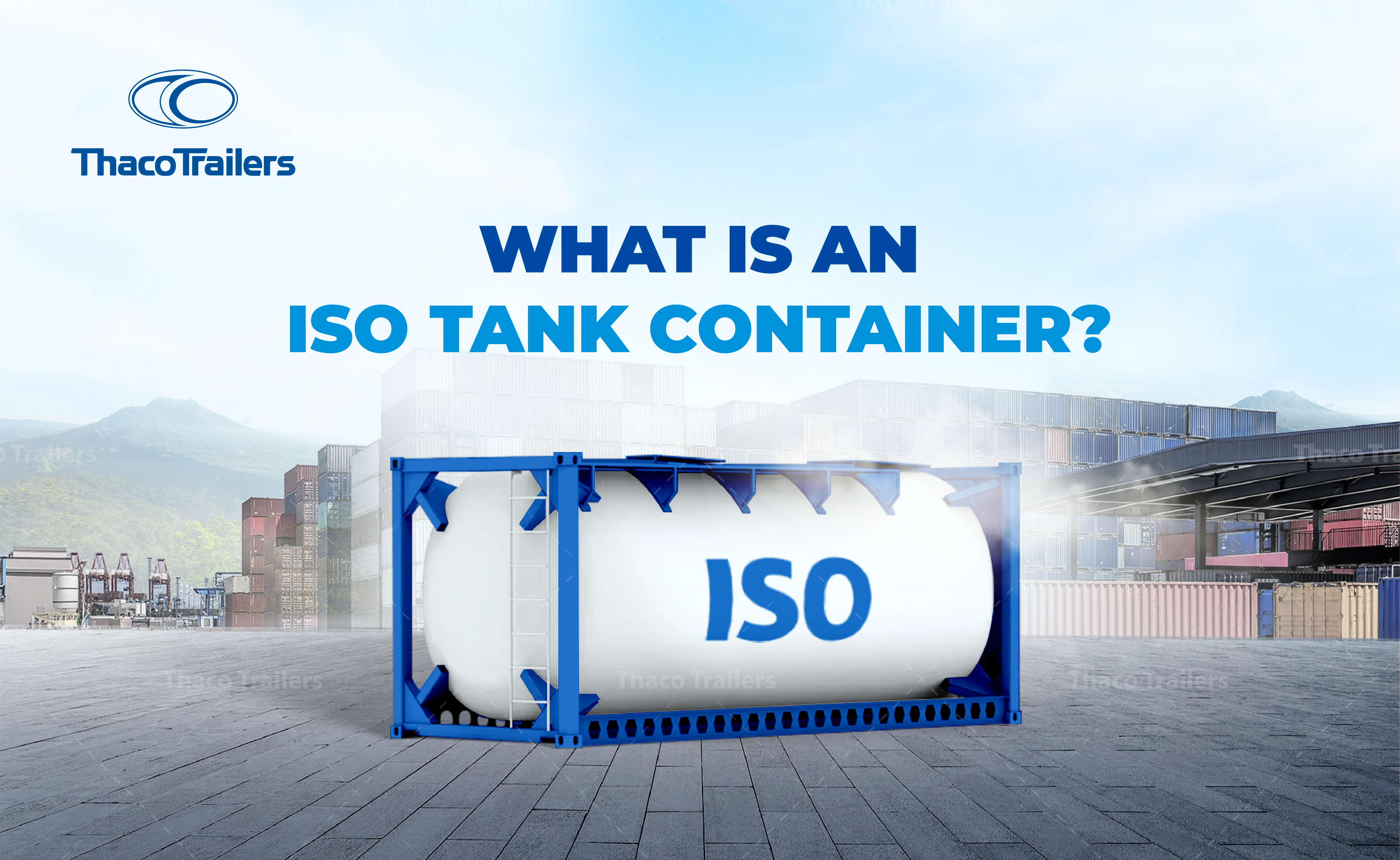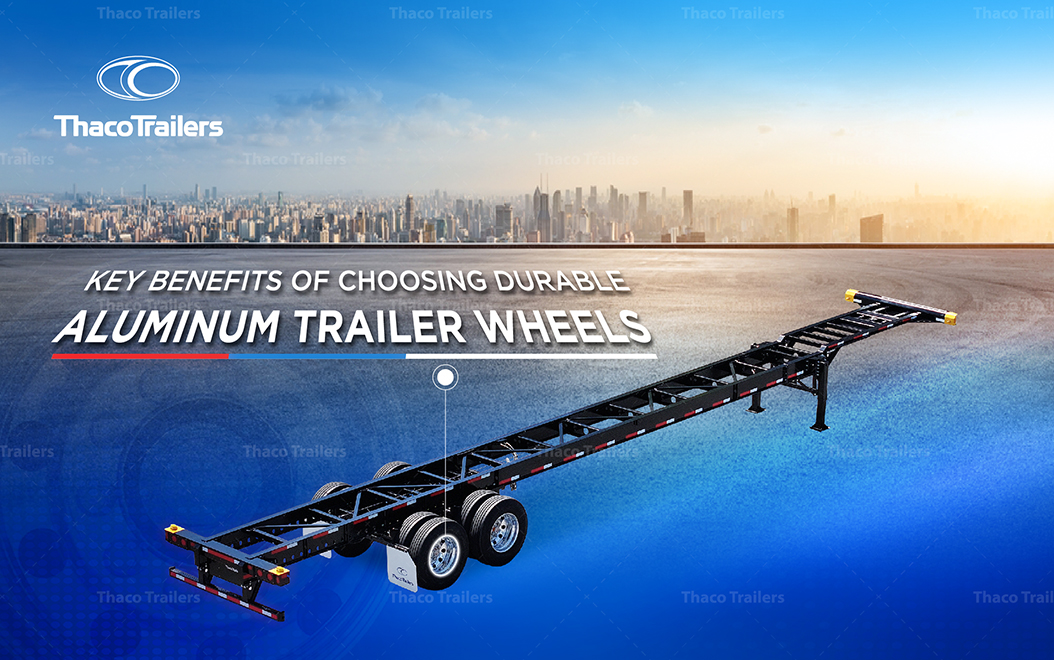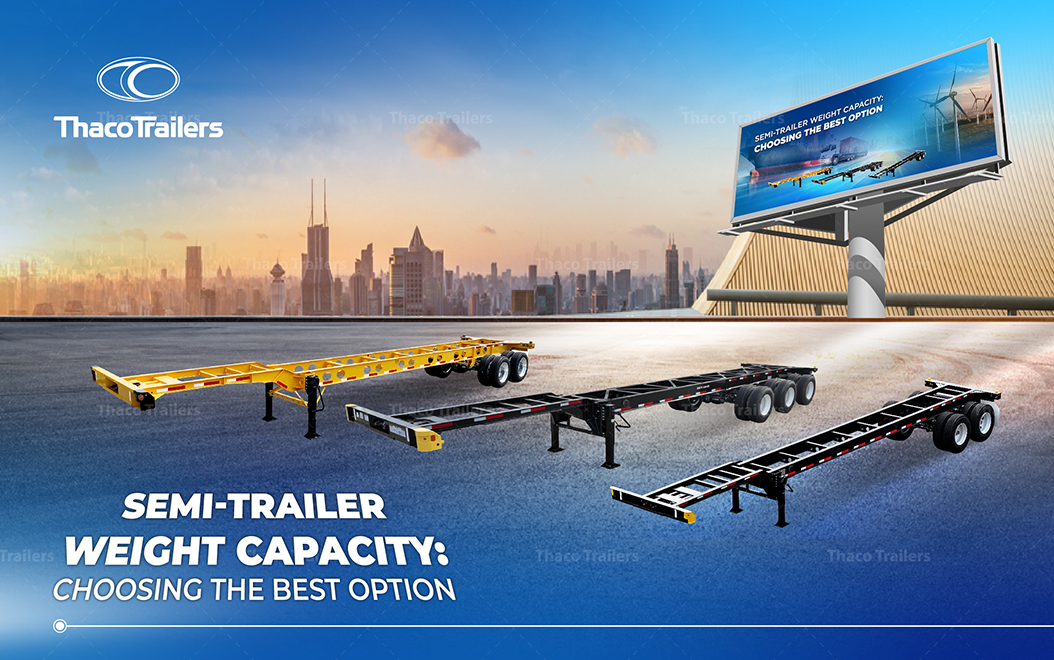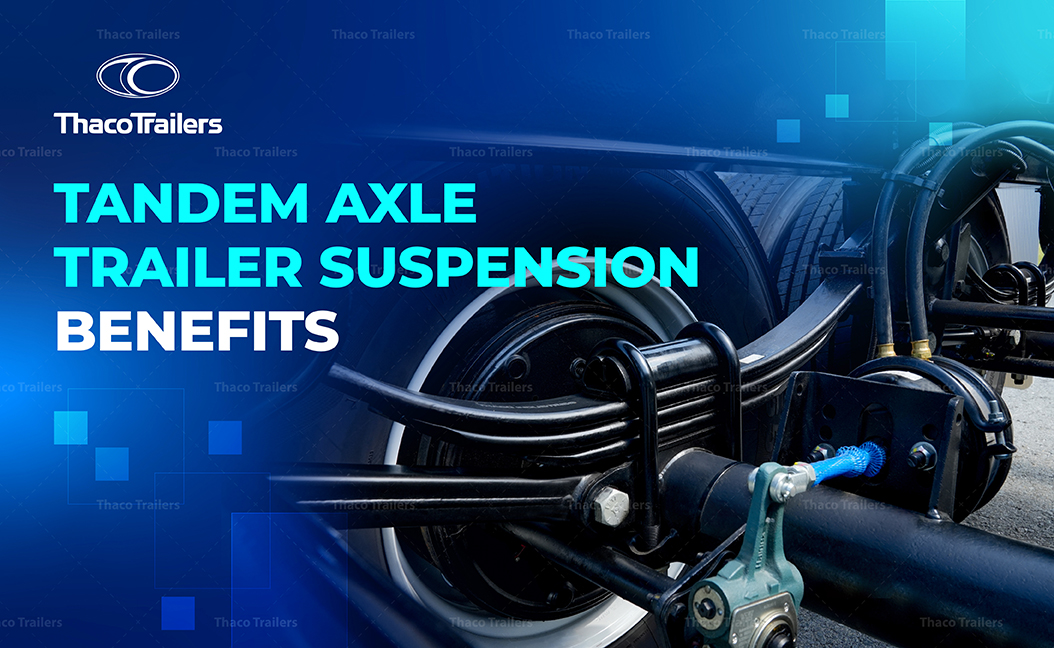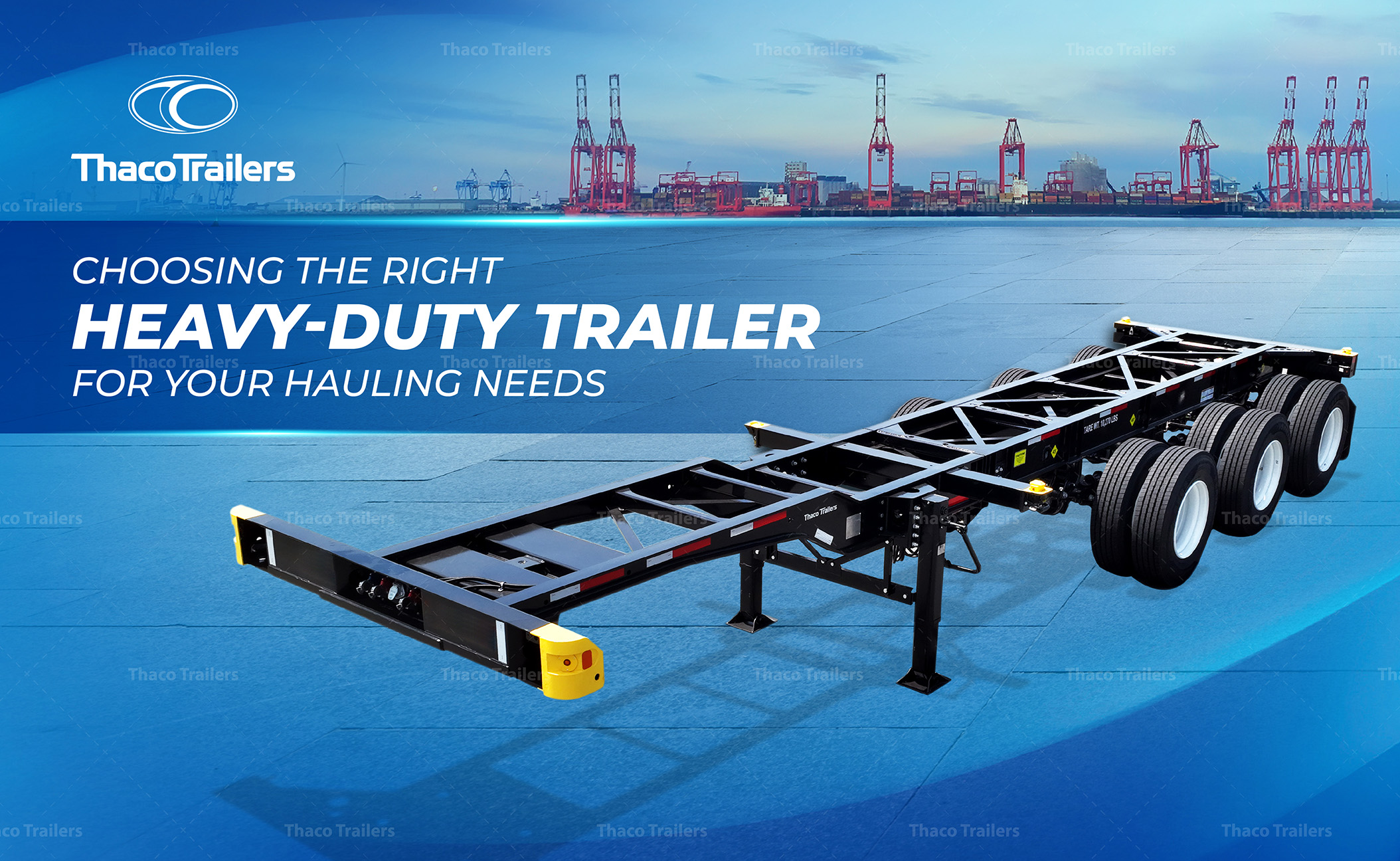THACO TRAILERS – TRUSTED TANKER TRAILER MANUFACTURER FOR THE US MARKET
When it comes to choosing a tanker trailer manufacturer, understanding the different options and the specific features offered by leading companies is key. In this blog, Thaco Trailers will explore what makes a top tanker trailer manufacturer and highlight the best options in the US market.
What is a tanker trailer?
The tanker trailer is a peculiar truck trailer in the transportation of liquids, gasses, and dry bulk products in large volumes. These are commonly seen on highways, sleek and featuring cylindrical tanks. From traversing the vast industries of chemicals and petroleum to food-grade transportation, tanker trailers are important in the chain of logistics for the safety and efficient delivery of important products.
Safety in tanker operation is mandated by the Federal Motor Carrier Safety Administration, requiring CDL endorsements for all tankers with an individual rating exceeding 1,000 gallons of liquid. Other features that may be installed include emergency shutdown valves, pressure relief devices, and spill containment systems to ensure safety in handling during transit and reduce the occurrence of an accident that could lead to environmental hazards.
>> Read more: What is Container Chassis? Learn about Types and Uses – Thaco Trailers
Different types of tanker trailer
Fuel/Oil Tank Trailer
A fuel tank trailer, also known as an oil tanker, gasoline tanker, or petrol tanker, is a type of transportation designed to transfer liquefied loads, such as gasoline, diesel, jet fuel, crude oil, and other petroleum products. Fuel/Oil Tank Trailer is the backbone of the global supply chain, transporting essential liquids across vast distances daily. They are built with a core of advanced safety features to minimize risks during transportation, loading, and unloading.
Most of the fuel tank trailers have multi-compartments of up to 3,100 gallons each to allow for variations in fuel types to be moved, thereby transporting different grades of gasoline and diesel and jet fuel in one trip. Incompatible products, such as diesel and gasoline, are kept from cross-contamination by double bulkhead compartments, which also serve to contain any leaks caused by internal damage.
These US-built fuel trailers must comply with the stringent DOT 406 stipulations in designing, constructing, and operating a trailer carrying flammable liquids. For transporting over 1,000 gallons of fuel, drivers must obtain CDL endorsements, and operators must ensure their trailers meet all regulatory safety standards.
Pneumatic Trailer
A pneumatic trailer, or dry bulk tanker, is a carrier specially installed with equipment to move granular freight of dry cement, plastic pellets, grain, sand, or flour. These are imperative for construction, agricultural, and manufacturing industries where bulk solid handling needs to be executed in the shortest time. In such a case, pneumatic trailers can provide versatility, durability, and efficiency in delivering other than liquid products over long distances.
These tankers are made from carbon steel, aluminum, or stainless steel according to the needs of the commodity being transported. For instance, an aluminum model would be of preference when there is a need for weight limits to allow more payload. Moreover, pneumatic trailers are equipped with vacuum systems that help load specific products, such as plastic pellets, by using suction to efficiently pull the material into the trailer. This feature speeds up the loading process and ensures a smoother, more streamlined operation.
Contamination is a significant concern when transporting different types of dry bulk materials, especially food-grade products and plastic pellets. To mitigate this risk, carriers implement extensive tank cleaning protocols between loads, including specialized washes to prevent cross-contamination.
Asphalt Tank Trailer
Asphalt tank trailers are normally referred to as bitumen tankers-unique semi-trailers that transport hot liquid asphalt over distances, both short, medium, and long. Unlike normal tankers, these rectangular tank trailers boast built-in heating systems to maintain asphalt at high temperatures during transportation, ensuring that upon arrival of asphalt at its destination, the hot state is still-useful. These tankers play a very vital role in road construction, paving operations, and asphalt surface treatments.
The tankers are built with a chassis and a cylindrical tank body, which is insulated with Rockwool and coated with stainless steel for durability. The diesel or gas burner system maintains consistent heat to prevent asphalt solidification, while a hydraulic pump system supports loading, unloading, and internal circulation. This design ensures that asphalt remains at the desired temperature for application, minimizing delays and preventing material degradation.
Temperature control is essential during transport to prevent asphalt from overheating or breaking down. To maintain safe temperatures and preserve quality, the trailer is equipped with a heating system that can be powered by oil, gas, or coal. Overheating may cause asphalt to change into free carbon, making it less durable and thereby affecting its performance on the road.
Chemical Tank Trailer
A chemical tank trailer is adequately designed to carry hazardous, corrosive, or toxic liquids, such as industrial chemicals and acids and solvents, in a safe manner. These trailers are quite fundamental to the industries dealing with chemicals, pharmaceuticals, and agriculture for efficient and safe transportation of sensitive or hazardous substances. These chemical tank trailers must comply with very strict regulations, such as those related to DOT 407 and DOT 412 standards in the United States.
These trailers come in various sizes:
- 3,800 – 5,000 gallons: Suitable for chemicals with high specific gravity.
- 6,000 – 7,000 gallons: Standard size for most chemical tankers.
- Up to 8,000 gallons: For transporting lighter products in bulk.
Chemical tank trailers are usually made of stainless steel or aluminum because these materials are resistant to corrosive elements and sufficiently durable. Certain types of chemicals require tank trailers with special linings, such as rubber or FRP (Fiber Reinforced Plastic), to prevent chemical reactions that could damage the tank or contaminate the cargo.
>> Read more: Extendable Chassis: Key Features and Applications in the US
Key considerations when choosing reputable tanker trailer manufacturers
Certifications and Standards
Safety and regulatory compliances are the core foundational elements in the tanker trailer business, where the transportation of hazardous cargo falls under the strict conformation to the set standards by the DOT. Such DOT standards are not limited to, but include DOT 406, 407, 412, and MC-331 that detail various specifications on design, type of material used, and safety features to be incorporated for safe and efficient transportation of volatile substances. DOT and FMCSA enforce strict regulations to ensure the safety of people, goods, and the environment, requiring fleet operators and manufacturers to comply with these essential standards.
Meeting the set standards by DOT and FMCSA transcends structural specifications since this covers periodic inspection, driver certification, and operational specifications. For instance, drivers who transport more than 1,000 gallons of hazardous liquids are required to have a special gravity endorsement on their Commercial Driver’s License, proving that they have the knowledge to handle the product with safety. Continuous inspections, including pressure tests and leak checks, are also in place to ensure that the tankers remain within regulated standards during their operational lifespan. These protocols not only contribute to mitigating risks but also to operational efficiency through the reduction in the frequency of waits associated with safety breaches and resultant repairs.
>> Read more: The ultimate guide to selecting tri-axle chassis for semi-trailer
Manufacturing process
Manufacturing tanker trailers is a complex and highly regulated operation, involving elite welding techniques, strict quality control, and high-grade materials. Several critical components comprising such a process are explained here in some detail as a means to a better understanding of how these trailers are engineered to meet the highest standards.
Material selection plays a great role in the manufacturing of tanker trailers, determining not only the whole weight but also the corrosion resistance and compatibility with different types of cargo transport. One of the common selections is stainless steel-grade 304, 316, and 316L-due to its resistance to corrosion in chemical and food-grade applications, while lightweight aluminum, grades 5454 and 5652, is better for petroleum transport. In structural components, HSLA steel, along with epoxy primers and chemical-resistant paints, improves durability, while special linings are used where extra corrosion protection is needed.
Welding is one of the critical processes in manufacturing tanker trailers, allowing leak-proof performance with structural soundness. Key processes used include TIG welding for thin materials such as stainless steel, which requires great precision in detail, and MIG welding suited for high-volume production at much faster speeds on heavier-gauge sections. Advanced techniques, such automated orbital welding and submerged arc welding, add consistency with strength in the most critical areas: shell seams, end cap joints, and baffle attachments, thus reinforcing stability and safety throughout the trailer.
A thorough quality control system in manufacturing tanker trailers is crucial to ensure the vehicles are safe and comply with all regulatory requirements, having the capability to operate effectively for many years. Nondestructive testing by means of radiography and ultrasonic testing shows hidden flaws in welds or materials, while physical tests include hydrostatic pressure and load testing that mimics real-world stress to confirm durability. Thorough documentation, including weld maps, material certification, and inspection reports, helps ensure full traceability and adherence to industry standards.
>> Read more: Reputable semi-trailer manufacturers – Thaco Trailers
Customization options
Tanker trailer manufacturers offer extensive customization options to meet specific operational needs, including adjustments to tank size, materials, fittings, and safety features, ensuring that each trailer aligns with industry requirements and client specifications.
- Tank size: Tank size can range from standard capacities of 5,000 to 11,000 gallons, with custom volumes available for unique needs. Multi-compartment designs allow for the transport of different products within one trailer, featuring options for 2 to 8 separate sections with custom baffling systems to improve load stability.
- Fittings and valves: Loading and unloading systems can be tailored with various valve types, including butterfly, ball, internal, and emergency valves to facilitate safe and efficient cargo handling. Customers can also specify connection types, such as API adaptors or quick-connect systems, to ensure compatibility with terminal and customer site equipment, streamlining operational flow.
- Safety features: Tanker trailer safety features include pressure relief valves, secure access ladders, and anti-surge baffles to enhance stability during transport, along with optional roll stability control and tire pressure monitoring. These custom features ensure regulatory compliance, operational efficiency, and the secure transport of liquids and hazardous materials.
>> Read more: A comprehensive guide to trailer suspension systems – Thaco Trailers
Warranty and after-sales support
In the U.S. tanker trailer market, manufacturers provide robust warranty and after-sales support to enhance customer satisfaction and maximize operational uptime.
- Warranty length and coverage: Standard warranties typically range from one to five years, offering comprehensive coverage that includes parts and labor to address manufacturing defects.
- Spare parts availability: To reduce downtime, manufacturers and authorized dealers keep large inventories of spare parts, ensuring fast delivery of replacements and keeping tanker trailers in operation with minimal interruptions.
- Technical support: The manufacturers provide for their equipment by having technical support teams that can guide customers in troubleshooting, maintenance, and operation of the equipment. Such formidable support ensures that customers are guaranteed provisions of the tools and the support they would need to get their equipment working reliably over a long period.
Thaco Trailers – Trusted Tanker Trailer Manufacturer for the US Market
Thaco Trailers is a leading trailer manufacturer in Southeast Asia, specializing in high-quality tanker trailers for the U.S. market. With strong supply capabilities and extensive industry expertise, Thaco Trailers serves a wide range of industries, including transportation and logistics.
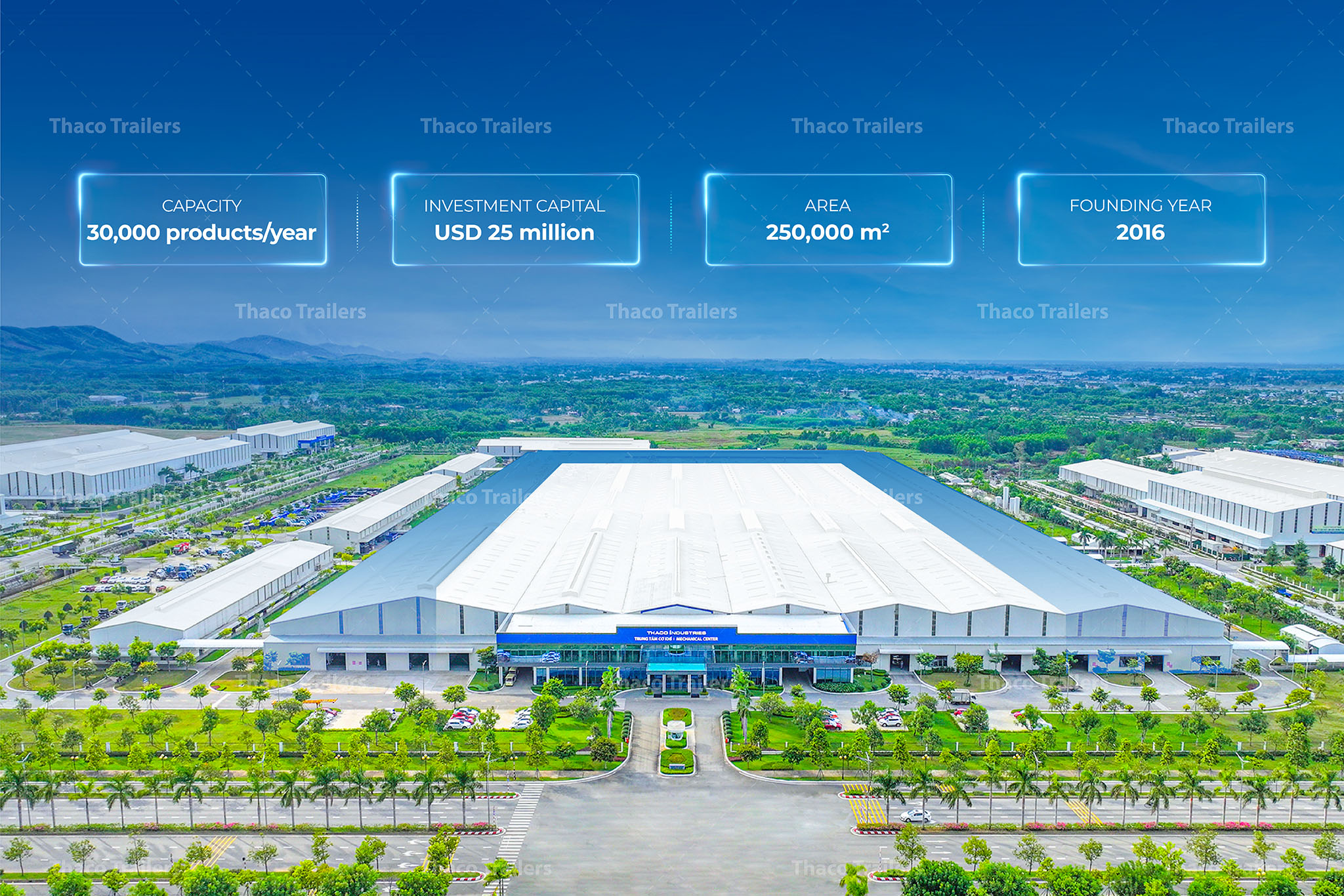
- Production Capabilities
Thaco Trailers operates with cutting-edge technology and highly skilled staff, producing 30,000 trailers annually. Its manufacturing processes adhere to stringent international standards, including DOT, AAR, ANSI, TOFC, FMVSS, SAE, and TTMA certifications, ensuring products meet the highest safety and performance requirements.
- Specialized Manufacturing
Thaco Trailers excels in the production of specialized medium and heavy-duty trailers, with a focus on tanker trailers. Using advanced materials and technologies, Thaco Trailers creates corrosion-resistant, durable products optimized for performance in demanding conditions.
- Engineering & Quality Control
Thaco Trailers’ engineering team utilizes sophisticated simulation tools and rigorous testing processes to ensure that each trailer meets the highest safety and efficiency standards. Investment in digital quality management systems such as SCADA ensures top-tier quality control across all stages of production.
Key Strengths:
- Expertise in tanker trailer manufacturing for the U.S. market
- Strong adherence to international safety and performance standards
- Investment in advanced production technology
- Reliable and durable products suited for diverse industries
Choosing the right tanker trailer manufacturer is essential for ensuring your cargo is transported safely and efficiently. With numerous tanker manufacturing companies available in the US market, it is crucial to consider your specific needs, from material and capacity to customization and support services. Whether you need a fuel tanker, chemical trailer, or dry bulk hauler, Thaco Trailers offers some of the best options to suit your business requirements.
Contact Information:
- Hotline: (+84) 933 805 707
- Email address: thacosv@thaco.com.vn

